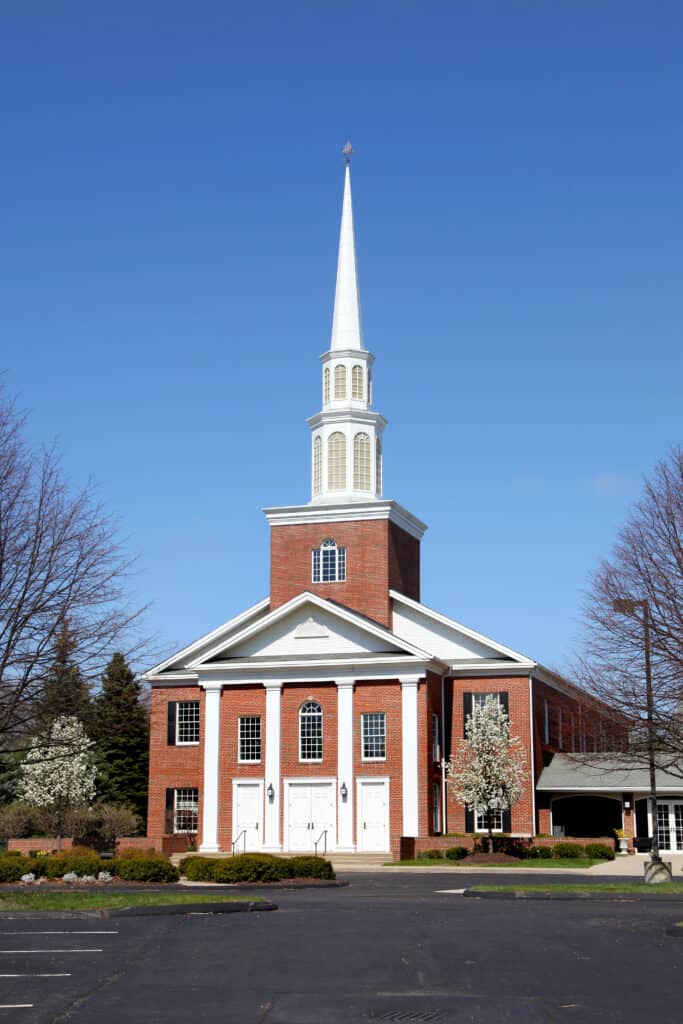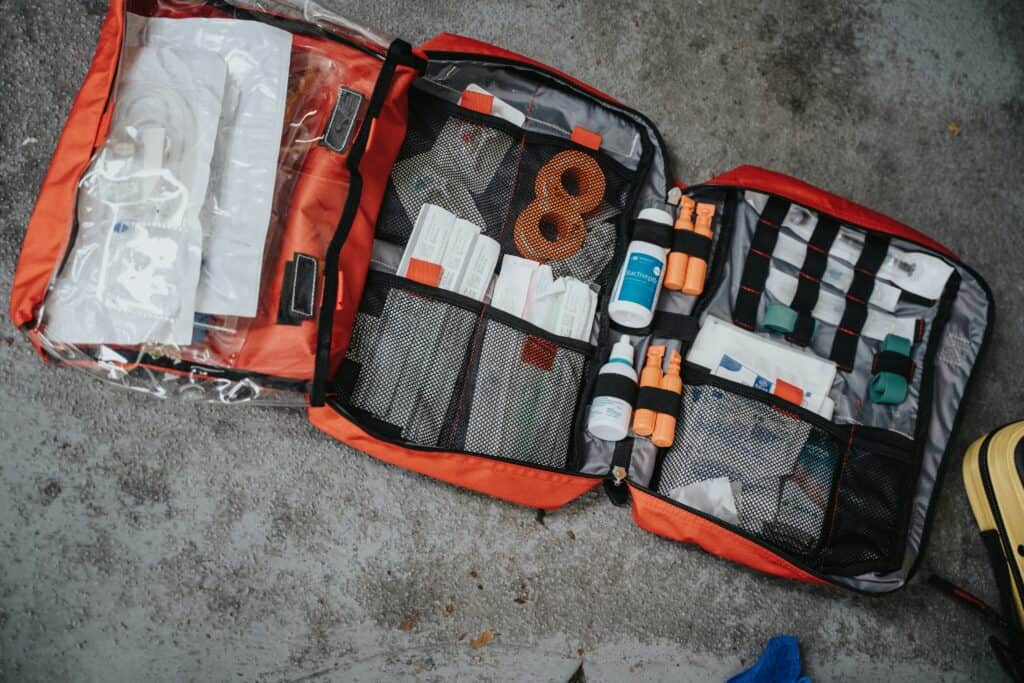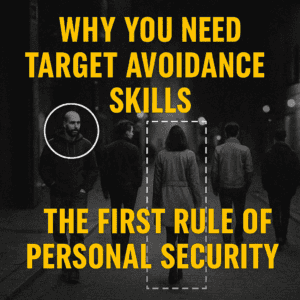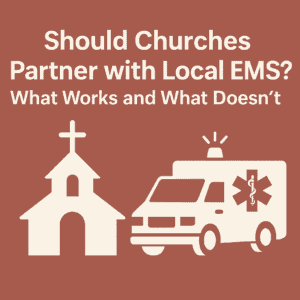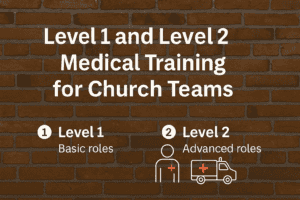Church security plays a crucial role in ensuring the safety and well-being of congregations and faith-based organizations.
Their primary responsibility is to protect church members, staff, and visitors from potential threats and harm, which can include not only violence but also emergencies such as fires and medical incidents, like heart attacks.
A comprehensive approach to church safety includes the development of protocols, training, and the implementation of security measures tailored to the unique needs of each organization.
The importance of maintaining a safe and secure environment for worshipers has become increasingly evident.
Tragic events and growing concerns surrounding the vulnerability of churches have led many organizations to establish dedicated security teams.
These teams work diligently to monitor, prevent, and respond to potential safety risks, creating an environment in which congregants can feel protected without hindering the atmosphere of reverence and community that pervades these sacred spaces.
Effective church safety practices involve ongoing assessment and improvements to minimize vulnerabilities and maximize preparedness.
This can entail a combination of physical security measures, such as video surveillance and access control systems, as well as the implementation of robust emergency response plans and incident command protocols.
By employing a proactive and thorough approach to safety and security, churches and other faith-based organizations can bolster their resilience and ensure the well-being of their congregations and staff.
Understanding Church Security
Church security encompasses the measures taken to protect the congregation, staff, and visitors of religious institutions from various security threats.
The primary objective of a church security team is to ensure the safety and well-being of all attendees while maintaining a welcoming and peaceful environment.
Developing a solid security plan is a crucial aspect of church security.
Such a plan outlines the roles and responsibilities of church leadership, security staff, and members during emergencies.
The plan should address potential risks, such as shootings, medical emergencies, and evacuations, preparing the congregation to respond effectively.
A key component of a church’s security plan involves training security personnel.
Church security team members undergo extensive training in understanding lockdowns, evacuations, and medical emergency responses.
They are expected to attend all services, classrooms, and special events to cover security needs.
Security measures often include establishing security policies and procedures that guide the actions of the security team.
These policies should be clear, concise, and easily accessible to all members of the congregation .
As part of their due diligence, church leaders may consult with security experts or enlist the services of security consultants to craft and implement these policies.
In addition to training and policies, effective church security relies on the continuous presence of a security ministry within the institution.
The ministry should be comprised of knowledgeable, diligent individuals who can identify and respond to potential security threats.
The importance of creating a security ministry lies in its role as a proactive, preventive measure.
Churches are often considered “soft targets” due to their open nature and the assumption of trust within the congregation.
Addressing security issues in these spaces requires a balance between fostering a welcoming atmosphere and establishing adequate security protocols.
Church security is a multifaceted domain that requires a comprehensive approach, encompassing a security plan, well-trained staff, and effective policies.
Its primary goal is to safeguard the congregation, staff, and visitors while maintaining a supportive and peaceful environment.
Implementing an Effective Security Plan
Church security plays a crucial role in safeguarding not only the physical premises, but also the congregation, staff, and volunteers attending the services and events.
Implementing an effective security plan involves assessing potential risks, establishing appropriate protocols, and involving both staff and volunteers in the process.
Here, we will discuss the key elements of a successful security plan for churches.
First, it is essential to conduct a thorough risk assessment to understand the potential incidents that may occur in or around the church premises.
Security professionals can help identify possible threats such as vandalism, robbery, or threats to personal safety.
This assessment informs the formulation of the security plan that addresses these risks proactively.
The foundation of church security lies in having comprehensive policies and procedures in place.
These guidelines serve to direct security personnel and volunteers in their roles and ensure that everyone is on the same page about how to execute security measures.
A robust set of policies should cover various aspects such as access control systems, surveillance cameras, and alarm systems.
Further, emergency planning outlines the protocol to be followed in case of a disruptive event or a security breach.
Recruiting the right personnel for church security is another vital aspect of an effective plan.
Both staff and volunteers involved in security should undergo thorough background checks before being allowed to have any involvement in the church’s security efforts.
This helps ensure that only trusted individuals are given responsibility within this sensitive domain.
As security measures evolve and expand, it is crucial to involve the entire church community in this process.
Achieving “buy-in” from churchgoers, staff, and volunteers is necessary for the seamless implementation of the plan.
Another crucial element of church security is investing in appropriate technological tools such as access control systems, video surveillance, and alarm systems to enhance the security infrastructure.
Employing qualified personnel to monitor and manage these systems can further ensure that potential threats are detected and prevented early.
Finally, the presence of patrolling staff can significantly enhance a church’s security landscape.
A regular presence of security personnel around the church premises acts as a deterrent to potential criminals and increases the overall safety levels for churchgoers.
Implementing an effective security plan for churches involves a combination of well-crafted policies and procedures, recruiting reliable personnel, leveraging appropriate technology, and encouraging active participation from the church community.
By following these guidelines, churches can cultivate a secure environment where worshipers can feel safe and protected.
Role of Church Leadership in Security

Church leadership plays a crucial role in ensuring the safety and security of the congregation.
A comprehensive security plan involves collaboration between the pastor, leadership team, and oversight board to create an environment of protection for parishioners and staff members.
The pastor holds a central position in the church, and as a spiritual leader, they must also consider the physical well-being of their members.
They work closely with the church leadership to establish a chain of command regarding security measures, emergency procedures, and communication protocols.
The oversight board has the responsibility to support and approve security-related decisions.
This may involve allocating financial resources for security infrastructure or hiring a security director to oversee the implementation and maintenance of safety measures.
The security director serves as a liaison between the church leadership and volunteers, law enforcement, or security companies, ensuring that the church’s safety needs are met.
When it comes to addressing potential threats, church leadership must work together to create an evacuation plan that ensures the well-being of congregation members in emergencies.
This plan includes procedures for medical emergencies, fires, robbery, and other unforeseen situations.
Carl Chinn, the former head of security for Focus on the Family, emphasizes the importance of having a well-prepared team of volunteers or staff members designated to handle these situations.
In addition, church leadership should encourage a culture of safety and awareness among congregation members.
Partnering with security experts to hold church safety training sessions can empower parishioners to take an active role in their own security.
This training can help congregation members identify potential threats and learn how to respond effectively.
Finaly, it is important for church leadership to maintain open lines of communication with parishioners regarding security matters.
By keeping the congregation informed of safety procedures and encouraging them to report suspicious activity, the leadership team reinforces the importance of working together to keep the church a safe and secure place for everyone.
Addressing Potential Emergencies
Church security plays a crucial role in addressing potential emergencies that may occur during gatherings and events.
These emergencies can range from medical emergencies, natural disasters, accidents, and even acts of violence.
The primary goal of church security is to ensure the safety and well-being of all attendees, with a particular focus on children, the elderly, and other vulnerable individuals.
One of the key aspects of church security involves developing an emergency plan that covers various scenarios, such as medical emergencies, natural disasters, and unforeseen accidents.
For instance, emergency scripts may be prepared to help people handle panic-inducing situations more effectively.
It’s important to create designated first aid areas for medical emergencies and ensure that staff are trained to handle common health issues, such as heart attacks, seizures, and airway obstructions.
In case of a natural disaster, the plan identifies exit routes and safe zones, taking into consideration the specific risks associated with the location of the church.
Child safety is an important aspect of church security, especially in light of past tragic incidents, like the one that occurred at First Baptist Church in Sutherland Springs, Texas.
To ensure children’s safety, strict procedures are put in place to monitor the access to areas designated for children, and locked doors, alarms, and surveillance systems may be employed.
Additionally, background checks of staff and volunteers working with children may be conducted to prevent any potential incidents.
In situations where the church faces active threats—such as a shooter or other acts of violence—an effective emergency plan outlines a detailed course of action.
This includes the use of alarms to warn people, providing means of resistance where appropriate, and establishing evacuation protocols to safely remove people from the church premises.
Special attention should be given to mobility-impaired individuals, children, and the elderly during evacuations.
A robust and proactive church security approach addresses a range of potential emergencies and focuses on the safety of all attendees, prioritizing the welfare of vulnerable individuals.
By fostering a culture of preparedness and vigilance, churches are better equipped to manage and minimize the risks that can arise during gatherings.
Frequently Asked Questions
What are the responsibilities of a church security team?
A church security team is responsible for ensuring the safety and security of all church members, staff, and visitors, while maintaining a welcoming and peaceful environment. This involves prioritizing the well-being of the congregation and demonstrating a strong commitment to their protection.
How can a church security plan be developed?
Developing a church security plan involves several key steps, including executive buy-in, performing a risk assessment, obtaining professional feedback, conducting background checks on team members, providing training, assigning roles, identifying exit points, and creating emergency scripts.
What training is required for church security team members?
Church security team members should undergo specialized training geared towards safety and security in a house of worship. This may include various methods, such as conflict resolution, communication skills, first aid and CPR, situational awareness, identifying potential threats, and implementing appropriate response plans.
How can you join a church security team?
To join a church security team, individuals can start by approaching their church leaders to express their interest and willingness to volunteer. They may need to provide personal information for a background check and, if accepted, complete the necessary security training before becoming an active member of the team.
What are some effective church security tips?
Effective church security tips include ensuring doors that are not in use are locked, using video surveillance and security systems, creating a security team with clear roles and responsibilities, offering regular training for team members, maintaining clear communication channels between the congregation and security personnel, and developing plans for various emergency situations.
Why is having a security team important to a church?
Having a security team is essential for a church as it provides a safe and secure environment for the congregation to worship without fear. A dedicated security team can quickly identify and address potential issues, acting as a deterrent for potential threats and helping to maintain a sense of reassurance and peace for all churchgoers.

